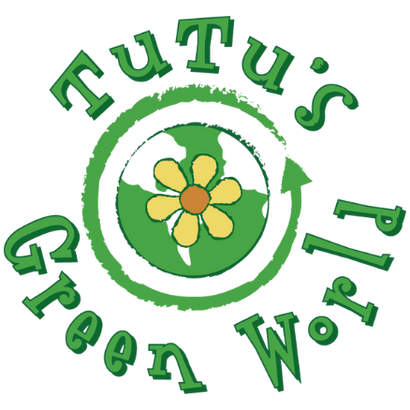![[National Women's and Nutrition Month 2025] Winona LaDuke](http://tutusgreenworld.com/cdn/shop/articles/A_realistic_digital_painting_of_Winona_LaDuke__an_2048x.jpg?v=1742063585)
[National Women's and Nutrition Month 2025] Winona LaDuke
Winona LaDuke: Champion of Indigenous Food Sovereignty and Sustainability
Winona LaDuke is a renowned environmental activist, economist, and writer dedicated to Indigenous land rights, renewable energy, and sustainable food systems. As an Anishinaabe leader of the White Earth Reservation in Minnesota, LaDuke has spent decades working to restore traditional food practices, promote food sovereignty among Indigenous communities, and fight for agricultural sustainability.
Preserving Traditional Indigenous Agriculture
LaDuke’s work in food sovereignty is deeply rooted in Indigenous knowledge and the protection of traditional crops. She has actively worked to reintroduce heritage grains such as wild rice (manoomin), a sacred and nutritious staple of the Anishinaabe people. By advocating for local food systems and organic farming methods, she has helped Indigenous communities reclaim control over their food sources, reducing dependence on industrial agriculture.
The White Earth Land Recovery Project
In 1989, LaDuke founded the White Earth Land Recovery Project (WELRP), an organization dedicated to restoring Indigenous lands, reviving traditional farming techniques, and ensuring food security. Under her leadership, WELRP has promoted the cultivation of heirloom varieties of corn, beans, and squash—the “Three Sisters” crops that provide balanced nutrition and sustain Indigenous cultures.
Fighting Against Genetically Modified Organisms (GMOs)
A strong advocate against corporate control of seeds, LaDuke has been vocal about the dangers of genetically modified crops and their impact on biodiversity. She argues that GMO proliferation threatens traditional farming and Indigenous food sovereignty. By supporting seed-saving initiatives and promoting organic, non-GMO agriculture, she has worked to preserve nutritional integrity in food systems.
Promoting Sustainable Food Practices
Through her organization Honor the Earth, LaDuke emphasizes the importance of sustainable, locally sourced foods. She encourages the shift from industrial food production to regenerative agriculture, which prioritizes soil health, minimizes chemical use, and enhances the nutritional value of crops. Her advocacy extends beyond Indigenous communities, influencing broader conversations about the future of sustainable food.
LaDuke’s lifelong dedication to food sovereignty has had a transformative impact on Indigenous communities, ensuring that traditional and nutritious foods remain accessible for future generations.
Also in TuTu's Green Stuff Blog

Explore, Protect, Adventure: Discover the Magic of Mountains on International Mountain Day
Every year on December 11, people around the world celebrate International Mountain Day, a time to learn how mountains shape our planet and support life in incredible ways. Even if you do not live anywhere near a mountain, these towering natural wonders affect the water you drink, the animals you love, and the adventures you dream about.

World Soil Day, Discover the Amazing World Beneath Your Feet 🌍🪱
Soil might look like simple brown dirt, but it is one of the most alive and important parts of our planet. World Soil Day is a chance to explore the tiny world hidden beneath our feet, a world filled with creatures, nutrients, and natural systems that help plants grow, clean our water, and even protect the climate. When we understand how soil works, we can appreciate this incredible resource and learn how to protect it.

Every Species Matters: Learn, Share, and Help Animals Thrive on World Wildlife Conservation Day 🌍💚
World Wildlife Conservation Day takes place every year on December 4, and it reminds us how important it is to protect the amazing animals we share our planet with. Many species are endangered because of wildlife crime, which includes poaching, the illegal pet trade, and the destruction of habitats.
